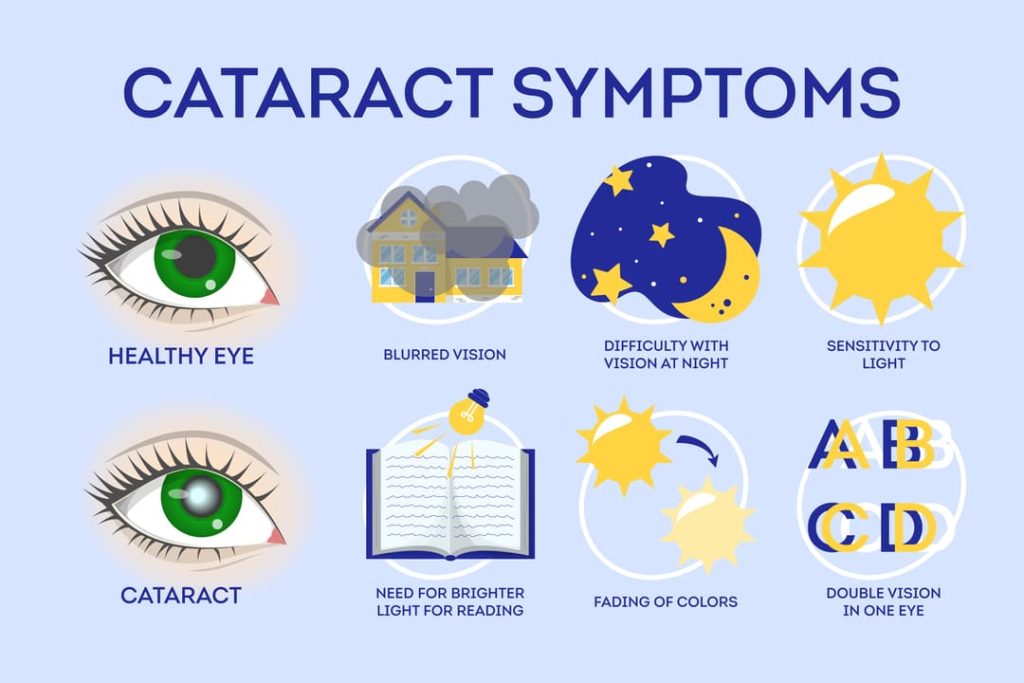Looking for Expert-Level VA Claim Answers?📱Call Us Now! 737-295-2226
Outdoor military activities can expose service members to intense sunlight, dust, and trauma, which are known risk factors for eye problems, including cataracts.
That leads many veterans dealing with cataracts to wonder, “Is VA cataract surgery covered?”
In this post, we’ll look at what cataracts are, whether VA cataract surgery is covered, and how the VA rates cataracts both before and after surgery.
Let’s take a look.
Table of Contents
Summary of Key Points
- The VA does cover cataract surgery for eligible veterans, including pre-op and post-op care, if the cataracts are service-connected.
- Cataracts are rated by the VA under Diagnostic Code 6027 at 10%, 20%, 40%, or 60%, depending on severity and frequency of treatment episodes.
- VA uses the General Rating Formula for Eye Diseases both before and after surgery; post-surgery evaluations may also use DC 6029 (aphakia) if no replacement lens is implanted.
- Common causes of cataracts in veterans include sun exposure, trauma, and age, especially in outdoor or combat environments—making a service connection possible in many cases.
What is a Cataract?

A cataract is a medical condition characterized by clouding of the lens of the eye, which leads to a decrease in vision.
The lens of the eye is normally clear and helps to focus light onto the retina, allowing us to see clearly. However, with age and other factors, the proteins in the lens can clump together, causing the lens to become cloudy or opaque.
This clouding interferes with the passage of light through the lens, resulting in blurred or distorted vision.
Cataracts typically develop slowly over time and can occur in one or both eyes.

Common Symptoms
- Blurred or cloudy vision: Objects may appear hazy or less sharp than they used to.
- Sensitivity to light: Lights, especially bright ones, might cause glare or halo effects.
- Difficulty seeing at night: Vision may be especially impaired in low-light conditions.
- Fading or yellowing of colors
- Frequent changes in eyeglass or contact lens prescriptions
Causes
- Aging
- Genetics: A family history of cataracts can increase your risk.
- Trauma: Eye injuries can lead to the development of cataracts.
- Medical conditions: Diabetes and certain metabolic disorders can contribute to cataract formation.
- Smoking and alcohol
- Excessive sun exposure: Prolonged exposure to ultraviolet (UV) light without protection may play a role.
- Certain medications: Long-term use of some medications, such as corticosteroids, can increase the risk of cataracts.
VA Cataract Surgery
Cataract surgery is a medical procedure used to remove the cloudy lens from the eye and replace it with an artificial intraocular lens (IOL) to restore clear vision.
Cataract surgery is a commonly performed and highly successful procedure, with a low risk of complications. This surgery is typically done on an outpatient basis, allowing patients to return home on the same day. The procedure itself lasts for one hour, and it’s generally painless.
The recovery period following cataract surgery ranges from 2 to 6 weeks. During this time, it’s common for patients to experience vision, double vision, or a gritty sensation.
Will the VA Pay for Cataract Surgery?
Yes! Cataract surgery and vision correction procedures are covered by VA Healthcare if your cataracts are service-connected.
VA Healthcare will cover not only the surgery itself but also care before and after surgery.
How the VA Rates Cataracts
Cataracts are rated at 10%, 20%, 40%, and 60% (Diagnostic Code (DC) 6027).
VA Ratings BEFORE Cataract Surgery
In cases where cataract surgery hasn’t been performed, the evaluation is conducted using the General Rating Formula for Eye Diseases.
The percentage you’re awarded depends on the severity of your symptoms, such as overall visual impairment and the presence of incapacitating episodes.
Incapacitating episodes refer to instances that required medical treatment, such as laser treatments, surgeries, and eye injections.
The VA’s General Rating Formula for Eye Diseases is as follows:
- 60%: When documented incapacitating episodes demand 7 or more treatment visits for an eye condition within the past 12 months.
- 40%: When documented incapacitating episodes necessitate at least 5 but no more than 7 treatment visits for an eye condition within the past 12 months.
- 20%: When documented incapacitating episodes require at least 3 but fewer than 5 treatment visits for an eye condition within the past 12 months.
- 10%: When documented incapacitating episodes mandate at least 1 but fewer than 3 treatment visits for an eye condition within the past 12 months.
VA Ratings AFTER Cataract Surgery
When cataract surgery has been performed, the same General Rating Formula mentioned above is used.
However, the rating might vary based on the outcome of the surgery.
In cases where a replacement lens is implanted (referred to as pseudophakia), the evaluation is conducted using the standard General Rating Formula.
Conversely, if no replacement lens is present, the assessment is conducted under DC 6029, focusing on aphakia.

VA Compensation For Cataract Surgery
If your cataracts are a result of conditions connected to your service, you may qualify for benefits.
For example, if exposure to factors during your time in service led to the development of cataracts, you could be eligible for compensation based on your VA rating.
NEED MORE ASSISTANCE?
Most veterans are underrated for their disabilities and, therefore, not getting the compensation they’re due. At VA Claims Insider, we help you understand and take control of the claims process, so you can get the rating and compensation you’re owed by law.
If you’ve filed your VA disability claim and have been denied or have received a low rating—or you’re unsure how to get started—reach out to us! Take advantage of a VA Claim Discovery Call. Learn what you’ve been missing—so you can FINALLY get the disability rating and compensation you deserve!
FAQs
Does the VA cover cataract surgery?
Yes, the VA does cover cataract surgery for eligible veterans who are enrolled in VA healthcare. The coverage includes the surgical procedure and necessary follow-up care.
Will the VA cover the cost of cataract surgery performed by non-VA providers?
The VA may cover cataract surgery performed by non-VA providers, but it’s important for veterans to communicate with the VA to understand the coverage options and any associated costs.
Does CHAMPVA cover cataract surgery for dependents of veterans?
CHAMPVA may cover cataract surgery for eligible dependents of veterans. Beneficiaries should review CHAMPVA guidelines to determine coverage eligibility.
What’s the procedure for scheduling cataract surgery through the VA?
Veterans should begin by consulting a VA healthcare provider for a comprehensive eye examination. If the provider recommends cataract surgery, they will guide the veteran through the scheduling process.
What kind of pre-operative and post-operative care is provided by the VA for cataract surgery?
The VA provides comprehensive preoperative evaluations and post-operative follow-up care to ensure the best possible outcomes for veterans undergoing cataract surgery.
What is the cataract VA rating?
Cataracts are rated at 10%, 20%, 40%, and 60%, under Diagnostic Code (DC) 6027.
Author

Brian Reese
Brian Reese is a world-renowned VA disability benefits expert and the #1 bestselling author of VA Claim Secrets and You Deserve It. Motivated by his own frustration with the VA claim process, Brian founded VA Claims Insider to help disabled veterans secure their VA disability compensation faster, regardless of their past struggles with the VA. Since 2013, he has positively impacted the lives of over 10 million military, veterans, and their families.
A former active-duty Air Force officer, Brian has extensive experience leading diverse teams in challenging international environments, including a combat tour in Afghanistan in 2011 supporting Operation ENDURING FREEDOM.
Brian is a Distinguished Graduate of Management from the United States Air Force Academy and earned his MBA from Oklahoma State University’s Spears School of Business, where he was a National Honor Scholar, ranking in the top 1% of his class.



